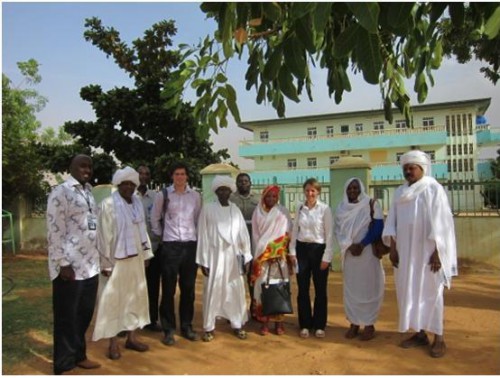16th September 2014
Darfur
Darfur continues to be a major focus for the work of this embassy. We believe strongly that there is no military solution. The fighting has to stop. All parties need to engage in discussion to agree a long-term political settlement. The Doha Document for Peace in Darfur provides a blueprint. But several rebel factions have not signed up, and implementation remains painfully slow. National Dialogue should, as the President made clear, provide a comprehensive and inclusive solution to the major challenges facing Sudan, including conflict. But here too progress is slow. The political environment in Sudan at the moment restricts the free political debate that is essential if National Dialogue is to succeed. Several political leaders are detained. Some key participants have yet to commit to National Dialogue.
Meanwhile the situation in Darfur is grave. The beginning of the year saw a renewed and sustained campaign by Government forces, which brought some of the worst fighting since the beginning of the conflict. As ever, it has been innocent civilians who have suffered most, with an increase in the number of refugees and terrible human rights abuses. Since then there has been a welcome lull in the conflict between government and rebel forces, but intertribal tensions have escalated across the region, leading to more deaths and displacements and undermining efforts at reconciliation. And, more generally, there has been a worrying increase in criminality in Darfur, adding to the sense of insecurity.
The UK remains heavily engaged diplomatically in supporting efforts to end conflict in Darfur and to create the conditions in which National Dialogue can succeed. We are also one of the major donors in helping to mitigate suffering of ordinary people cause by conflict. We announced an increase of £20m to World Food Programme humanitarian assistance in Darfur. Because of the increase in Internally Displaced People in Darfur (there are now over 2 million) we have had to prioritise immediate humanitarian assistance over longer-term development work. But we want to continue with that too, when and where circumstances allow, because it helps to address the underlying causes of conflict.
On the brighter side the last few months have seen plans to launch the Darfur Internal Dialogue and Consultation (DIDC). The notion of a Darfuri-Darfuri dialogue has long been at the heart of peace efforts in Darfur and is one of the important provisions of the DDPD. The aim of the process is to engage people from across the region and at all levels of society to ensure that any peace agreement reflects their concerns and aspirations. The DIDC will begin with a community outreach phase and dialogue at the local level, before moving on to state and regional consultations later.
The DIDC Implementation Committee, with support from UNAMID, has put a great deal of effort into preparations for the Consultation. I and staff from the Embassy have met with members of the committee several times. We are impressed by their commitment and enthusiasm. They are determined that the process will be as inclusive as possible, reaching out to a wide range of constituents, including IDPs, the diaspora and non-signatories.
We have also met with a range of Darfuris, including politicians, tribal leaders, activists and journalists, and listened to their views. We have encountered widespread support for the notion of dialogue. But we have also heard doubts about whether the DIDC can really deliver.
We hope that the Implementation Committee can keep to the high standards that they have set. But it will not succeed without financial support and political commitment from the Government. Without this, participants will not be able to travel, will not feel empowered to speak freely and will lack the conviction that their conclusions and recommendations will be implemented.

Last month the UN Security Council renewed the UNAMID mandate for a further 8 months In doing so it acknowledged some reduction in fighting over the last few months and signs of improved cooperation between the Government and UNAMID on practical issues. But it expressed serious concern about the increase in insecurity overall this year. And it looked forward to implementation of the recent review of UNAMID which directs it to concentrate on some core tasks; most importantly the protection of civilians.
One piece of good news is the formal start of the Demilitarisation, Demobilisation and Reintegration process of former fighters belonging to the JEM-Sudan group. They signed up to the DDPD last year. If only other rebel groups would follow them.